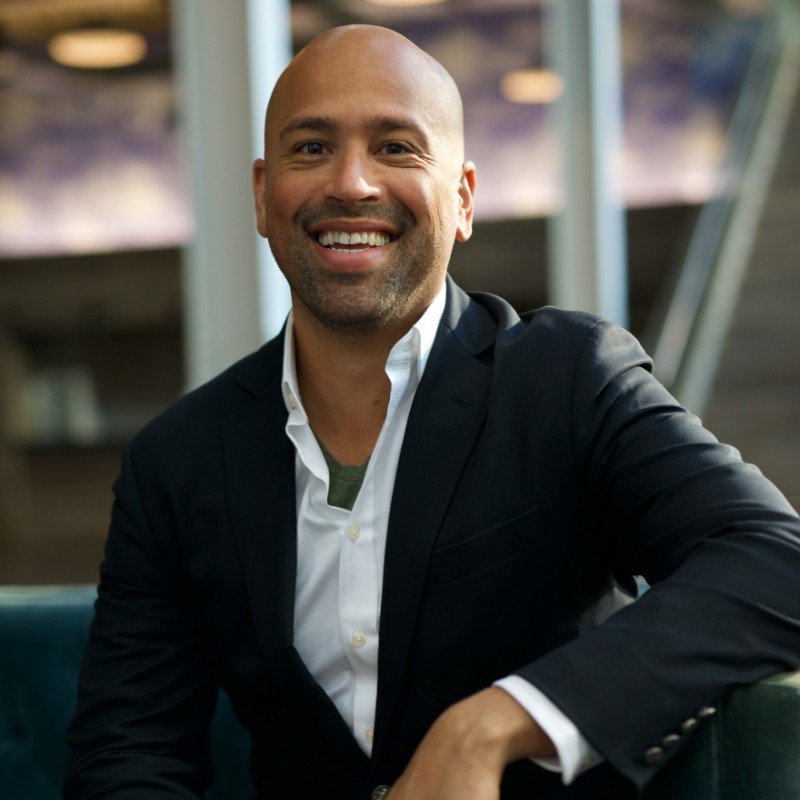By Sterling Grey, (MBA), VP Strategic Accounts at The Chemistry Group
 If somebody asked you to gamble your livelihood on a single piece of paper that had to sum up the entirety of your professional career you would think they were crazy; but that’s exactly what the CV asks you to do.
If somebody asked you to gamble your livelihood on a single piece of paper that had to sum up the entirety of your professional career you would think they were crazy; but that’s exactly what the CV asks you to do.
Before we get into this, try and do this for me, ask yourself if this is the best way to marry people to employment? I’d be surprised if you came up with an answer other than “no, of course not.” And if you did, why don’t you wait until the end of this article and then ask yourself again.
Evidence exists that suggests using CVs as a form of selection serve to amplify bias and in turn reinforce the gulf between those with [enter whichever privilege you consider relevant], and those with less. The tragic irony being that those with less are often those with the greatest need for gainful employment. In plain terms, CVs are not only bad for business, they are harmful and dangerous to society.
But here we are in 2020 and CVs still remain the principal source for job recruitment.
Unreliable information
I have a few issues with the CV.
Firstly, at their worst CVs are full of lies and, at best, full of seriously embellished interpretations of the best things we’ve ever done; carefully chosen from what is most likely a mixed bag of employment history.
Secondly, all CVs ever get is a quick glance or maybe a skim over the description. Recruiting through CVs is about as effective as recruiting through Tinder; we spend approximately the same amount of attention on each. If only I was kidding. Research from Ladders, Inc shows that the average time recruiters will spend looking at a candidate’s CV before deciding whether they are fit for a job is just 7.4 seconds. In those 7 seconds recruiters are looking at just six things:
Name, current title/company, previous title/company, previous position, start and end dates, current position, start and end dates plus education.
Reaffirming bias
And now things take a scary turn. A US field experiment on Labor Market Discrimination, conducted by Faculty Research Fellows Marianne Bertrand and Sendhil Mullainathan of the National Bureau of Economic research, exposed that CVs with Caucasian sounding names like Emily Walsh or Greg Baker were 50% more likely to get a callback than the identical CV with an African American sounding name such as Lakisha Washington or Jamal Jones. This research also indicated that a white name yielded as many more callbacks as an additional eight years of work experience.
The research authors noted: “While one may have expected that improved credentials may alleviate employers’ fear that African American applicants are deficient in some unobservable skills, this is not the case in our data. Discrimination therefore appears to bite twice, making it harder not only for African-Americans to find a job but also to improve their employability.”
But this isn’t just a problem for those across the pond. Prime Minister David Cameron brought up the issue of bias against “ethnic sounding names” in a Civil Service announcement in October 2015. Part of his agenda for the NHS consisted of adopting name-blind recruitment processes by 2020. However, biases are not just based on ethnicity.
Cameron may have drawn inspiration from the orchestras that began auditioning musicians behind a curtain. In what has historically been a male-dominated community it turned out it was female musicians who were favoured.
It would be easy for me to go on listing anecdotes like the above all day but there are also more data driven examples. Research firm Insync Surveys asked over 1,000 hiring managers in Australia and New Zealand to evaluate two CVs with the exact same qualifications and only one difference. Can you guess what it was? One was from Simon Cook, the other from Susan Cambell. Simon came out as the favourite, even amongst the female recruiters.
So let’s boil it down. If your name doesn’t sound white then you’re 50% less likely to get a call back. If you’re a woman you’re also less likely to get a call back. If you’re a woman with an “ethnic sounding name” you may question whether you even register as a person to recruiters?
Bringing these insights up in the past, with people that I genuinely believe to be thoughtful and intelligent, the response has always been an apathetic shoulder shrug and some version of “well, what else can we do?”
My answer to this is a lot.
It starts by caring less about how someone can best summarise their experience and skillset to date and more about how their intellect, personality, motivation, and behaviour fits in with what you need at the company.
 About the author
About the author
Sterling is VP Strategic Accounts at The Chemistry Group. The Chemistry Group are talent management consultants and over the past 15 years have worked with leading businesses to address bias, both conscious and unconscious, when recruiting corporate workforces across the globe.
Sterling is passionate about improving organisations through a better understanding of what drives our workplace behaviours. Tackling this challenge is as complex and dynamic as the people themselves, he’s committed to helping businesses unearth this untapped potential to ensure that everyone has the opportunity to be brilliant at work.








